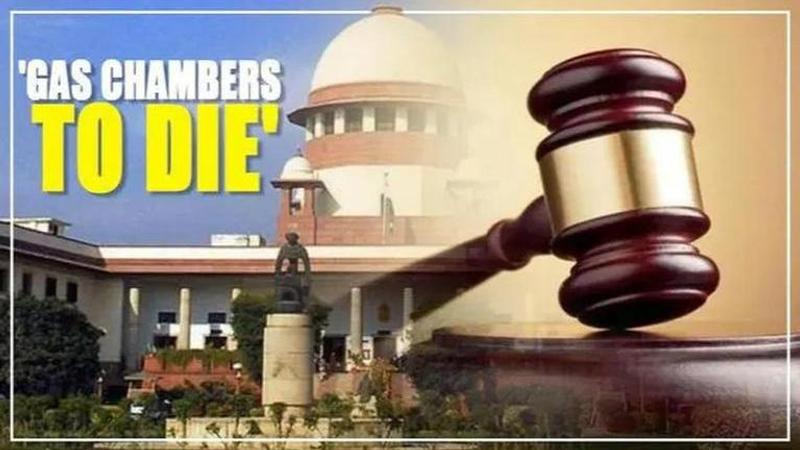Published 16:36 IST, September 18th 2019
SC asks Centre: 'Why manual scavengers not provided protective gear?'
SC expressed concern over people dying during manual scavenging in India, and stated that nowhere in the world people are sent to "gas chambers to die".

A three-judge bench consisting of Justices Arun Mishra, MR Shah, and BR Gavai in the Supreme Court on September 18 expressed serious concern over people dying during manual scavenging and sewage cleaning in India, and stated that nowhere in the world people are sent to "gas chambers to die". The apex court made these hard-hitting observations at the time of hearing the Centre's plea seeking review of its last year's verdict which had virtually diluted the provisions of arrest under the SC/ST Act.
SC on Caste Discrimination
While making scathing observations, the apex court said that though more than 70 years have passed since Independence, caste discrimination still persists in the country. A bench headed by Justice Arun Mishra questioned Attorney General KK Venugopal, appearing for the Centre, as to why proper protective gear like mask and oxygen cylinders were not being provided to people who are engaged in manual scavenging and cleaning of sewage or manholes.
"Why are you not providing them masks and oxygen cylinders? In no country in the world, people are sent to gas chambers to die. Four to five people are dying due to this every month."
Dilution of provision under SC/ST Act
The Supreme Court has reserved its orders to the Centre's petition seeking review of its March 20, 2018, judgment which had virtually diluted provisions of arrest under the SC/ST Act. Last year, the Supreme Court had introduced safeguards to prevent misuse of the SC/ST Act. It had held that prior sanction of the appointing authority is required for prosecuting officers for acts done by them with respect to the SC/ST Act in their official capacity.
Giving a purposive interpretation to Section 18 of the SC/ST Act, the court had stated, "There is no absolute bar against grant of anticipatory bail in cases under the Atrocities Act if no prima facie case is made out or where on judicial scrutiny the complaint is found to be prima facie mala fide."
This had led to the Centre filing a review petition against the judgment and had subsequently brought about an amendment seeking to invalidate the judgment in 2018. The amendment itself was subsequently challenged in the Supreme Court. The bench will hear the challenge next week against the 2018 amendment brought to the SC/ST Act.
(With inputs from PTI)
Updated 16:49 IST, September 18th 2019




